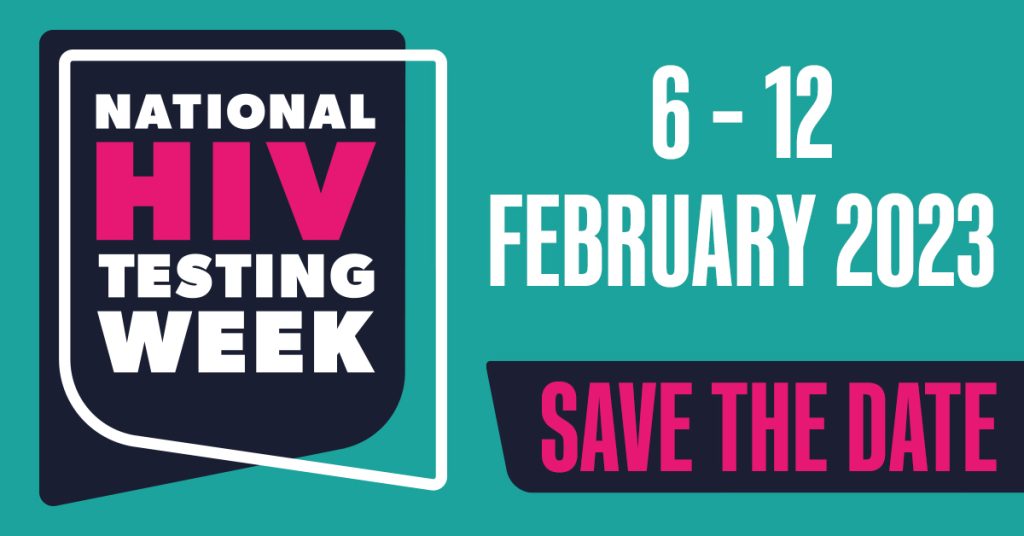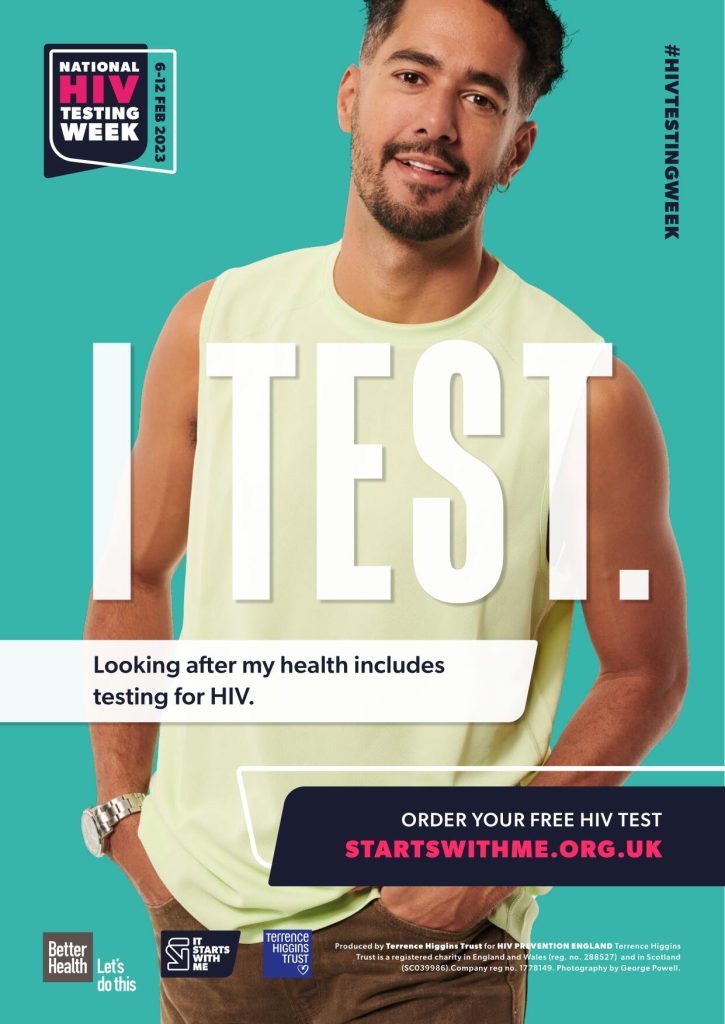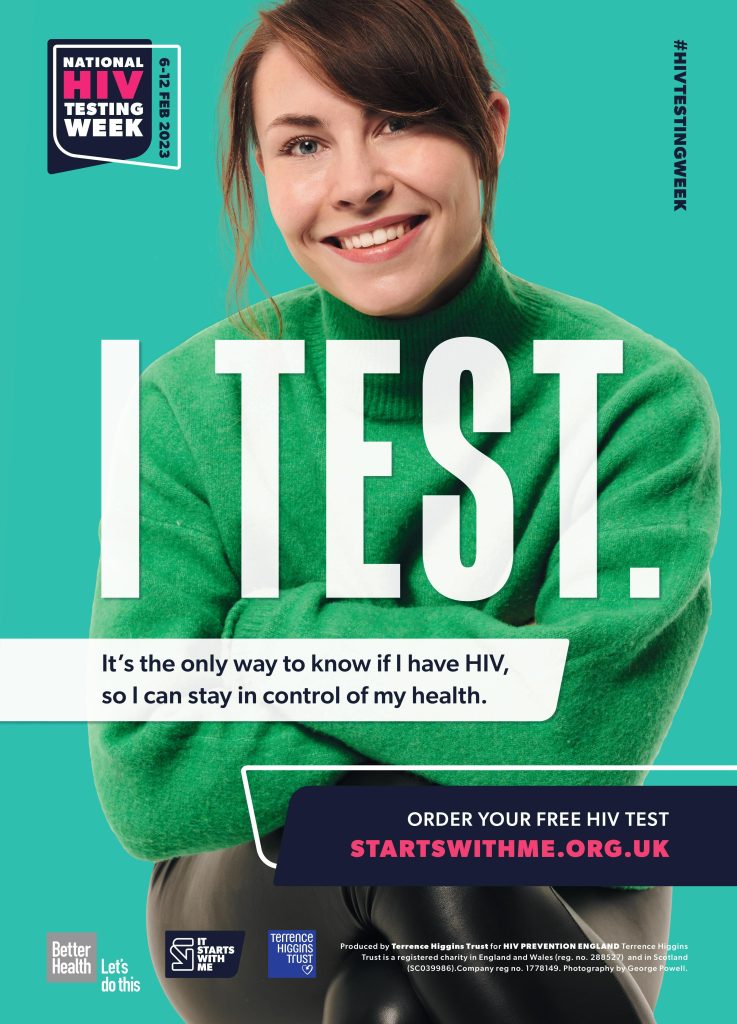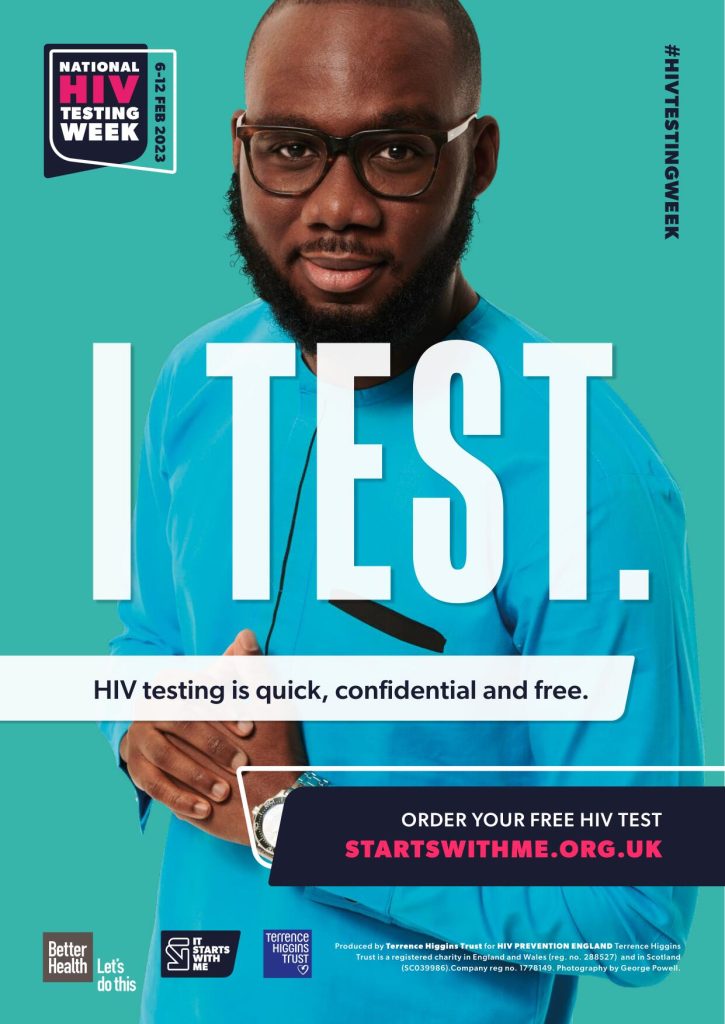
National HIV Testing Week starts Monday 6 February 2023 so please prepare by familiarising yourself with this year’s campaign and the different ways you can get involved.
A new campaign for 2023
National HIV Testing Week is a campaign to promote regular testing among the most-affected population groups in England. Regular testing helps to reduce the number of people living with undiagnosed HIV and those diagnosed late.
This year, the campaign returns with a new strapline, ‘I Test.’, across all National HIV Testing Week
materials, replacing ‘Give HIV The Finger’, which has been in place for the previous five years. The headline ‘I Test.’ is followed by a line that explores people’s different reasons for testing. This allows for flexibility in responding to different audience needs.
The new strapline and campaign approach was developed and adopted following findings and recommendations from evaluations of ‘Give HIV The Finger’ and audience insights gathered over the summer of 2022. Audiences were involved through focus groups and surveys throughout the development process. It builds on the concept of the National HIV Prevention Programme’s umbrella campaign, ‘It Starts With Me‘ by positioning testing as something normal, desirable, and that we can all take personal responsibility for.
Please see sample images from the campaign below. The campaign features a wide range of models with some resources translated into a number of languages. You can see the whole range of campaign resources via HIV Prevention England’s resources portal.






How to get involved
There are many ways you can get involved and support National HIV Testing Week. We are inviting organisations to participate by running campaign events, providing testing opportunities and promoting HIV testing, and prevention awareness, with our support. For more details, please download the campaign briefing [PDF].
Free Resources
Free resources to promote HIV testing this National HIV Testing Week are now available to order.
Log in to order leaflets, posters, and merchandise to support your National HIV Testing Week activities.
All printed resources are also available to download as PDFs.
Social Media Pack
The social media pack is now available to download.
